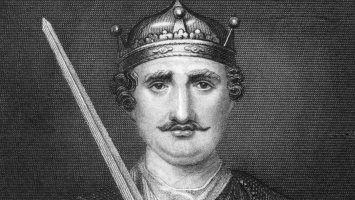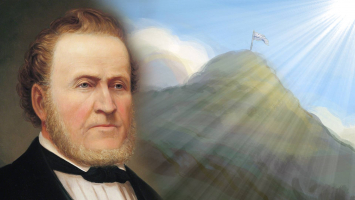Top 9 Interesting Facts about Claudius
Tiberius Claudius Caesar Augustus Germanicus was the fourth Roman emperor, ruling from AD 41 to 54. A member of the Julio-Claudian dynasty, Claudius was born ... read more...to Drusus and Antonia Minor at Lugdunum in Roman Gaul. Here are the 9 most interesting facts about Claudius that Toplist will give you.
-
One of the most interesting facts about Claudius is that he was ostracized by his family since he had a limp and some deafness as a result of a childhood illness. Claudius was born in Lugdunum on August 1, 10 BC (modern Lyon, France). Germanicus and Livilla were his two older siblings. Antonia Minor, his mother, may have had two other children who died when they were little. Tiberius Claudius Nero and Livia, Augustus' third wife, were his paternal grandparents. During his reign, Claudius revived the idea that his father, Nero Claudius Drusus, was Augustus' illegitimate son in order to give the impression that Augustus was Claudius' paternal grandfather. Claudius' father Drusus died abruptly during a campaign in Germany in 9 BC after falling from a horse. He was then abandoned by his mother, who never remarried. When his condition became apparent, his connection with his family deteriorated. Antonia called him a monster and used him as a yardstick for idiocy. She appears to have given her son to his grandma Livia for several years.
Livia was friendlier, but she still sent Claudius brief, harsh letters of reprimand. He was placed in the care of a "former mule-driver" to keep him disciplined, on the grounds that his condition was the result of sloth and a lack of desire. However, by the time he reached his adolescence, his symptoms appeared to have subsided, and his family began to take notice of his scholastic pursuits. With the help of Sulpicius Flavus, Livy was employed in AD 7 to educate Claudius on history. He spent a lot of time with him, as well as with the philosopher Athenodorus. According to a letter, Augustus was taken aback by the clarity of Claudius' oratory. Expectations for his future started to rise.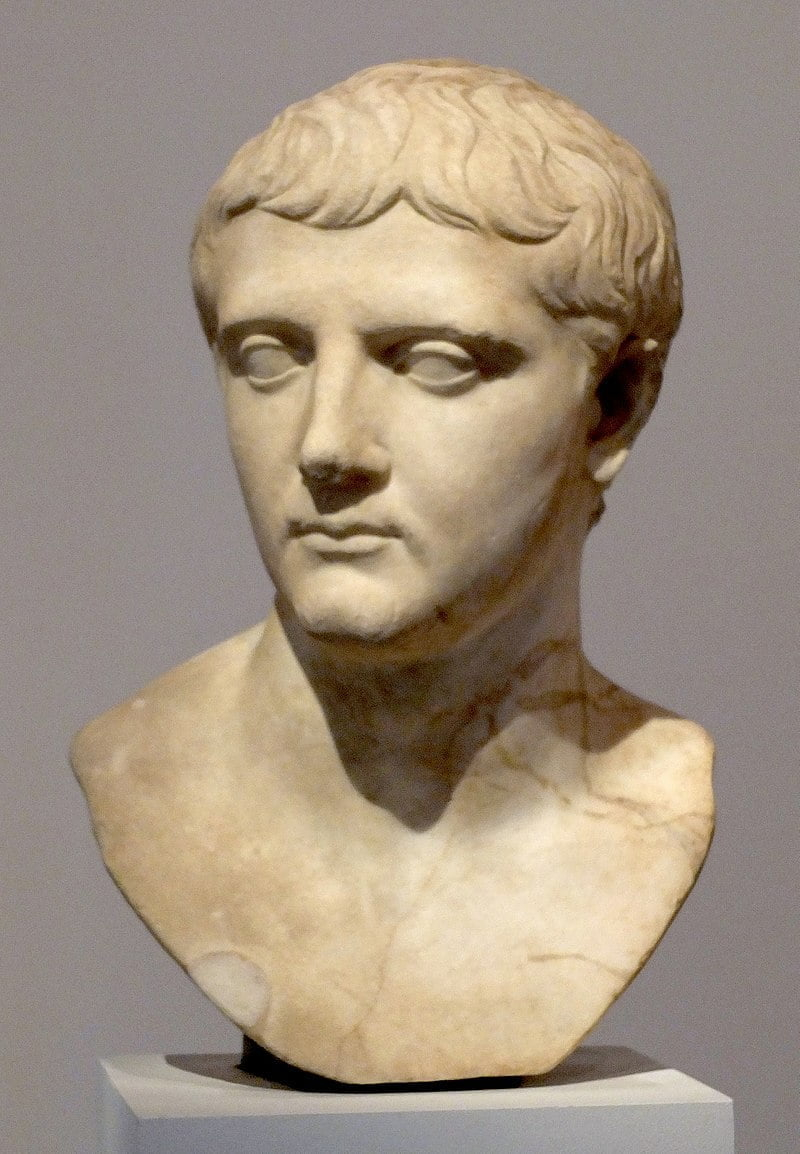
Nero Claudius Drusus (Claudius's father) -en.wikipedia.org 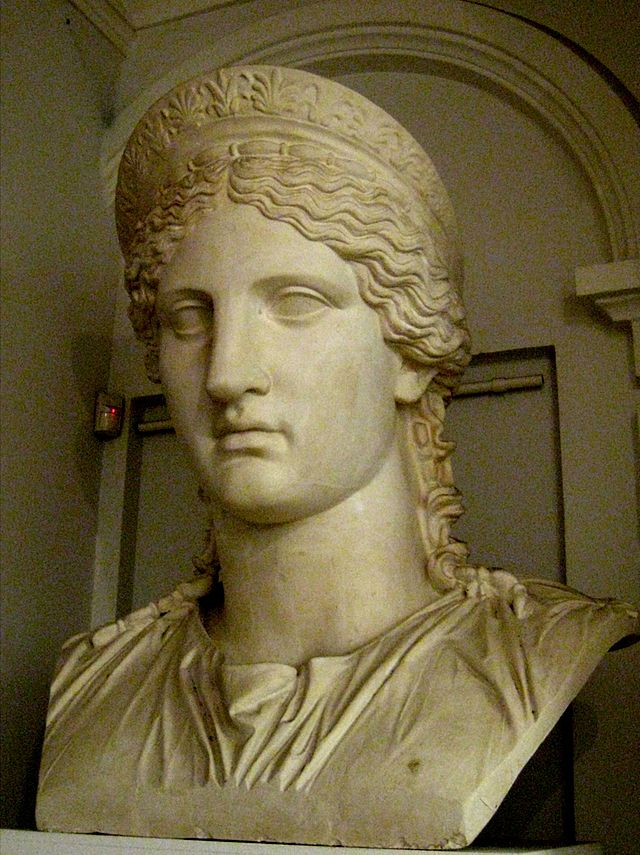
Antonia the Younger (Claudius's mother) -en.wikipedia.org -
It is a fact that he was declared emperor by the Praetorian Guard after Caligula's assassination. Claudius' infirmity likely protected him from the fate of many other nobles during Tiberius and Caligula's purges, as potential enemies did not perceive him as a major danger. Following Caligula's assassination, he was declared emperor by the Praetorian Guard, making him the only adult male in his family.
Caligula was slain on January 24, 41, in a broad-based conspiracy involving Cassius Chaerea, a military tribune in the Praetorian Guard, and numerous senators. There is no evidence that Claudius had a direct role in the assassination, though it has been suggested that he was aware of the scheme, especially because he fled the crime scene just before his nephew was murdered. However, following the deaths of Caligula's wife and daughter, it became clear that Cassius planned to go beyond the conditions of the conspiracy and completely destroy the Imperial dynasty.
Claudius observed the German guard slaughter several uninvolved noblemen, including several of his friends, in the mayhem that followed the murder. He ran away to the palace to hide. According to legend, a Praetorian named Gratus discovered him hiding behind a curtain and unexpectedly pronounced him the prince. The Senate promptly convened and began debating a change of administration, but this quickly turned into a debate about who would be the new prince. When they learned of the Praetorians' allegation, they asked that Claudius be brought before them for approval, but he refused, fearing the consequences of complying. According to certain historians, particularly Josephus, Claudius' activities were directed by the Judaean King Herod Agrippa. However, an earlier version of events by the same ancient author minimizes Agrippa's role, leaving the situation ambiguous. The Senate was eventually compelled to cave. In exchange, Claudius offered broad amnesty, notwithstanding the fact that he executed a few junior officers participating in the conspiracy. The actual assassins, including Cassius Chaerea and Julius Lupus, the murderer of Caligula's wife and daughter, were executed to assure Claudius' safety and to serve as a warning in the future.
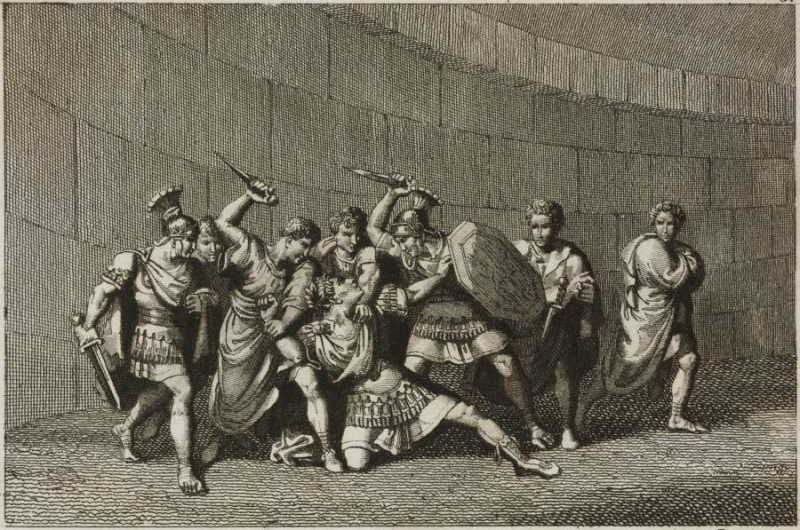
The Caligula's assassination -allthatsinteresting.com 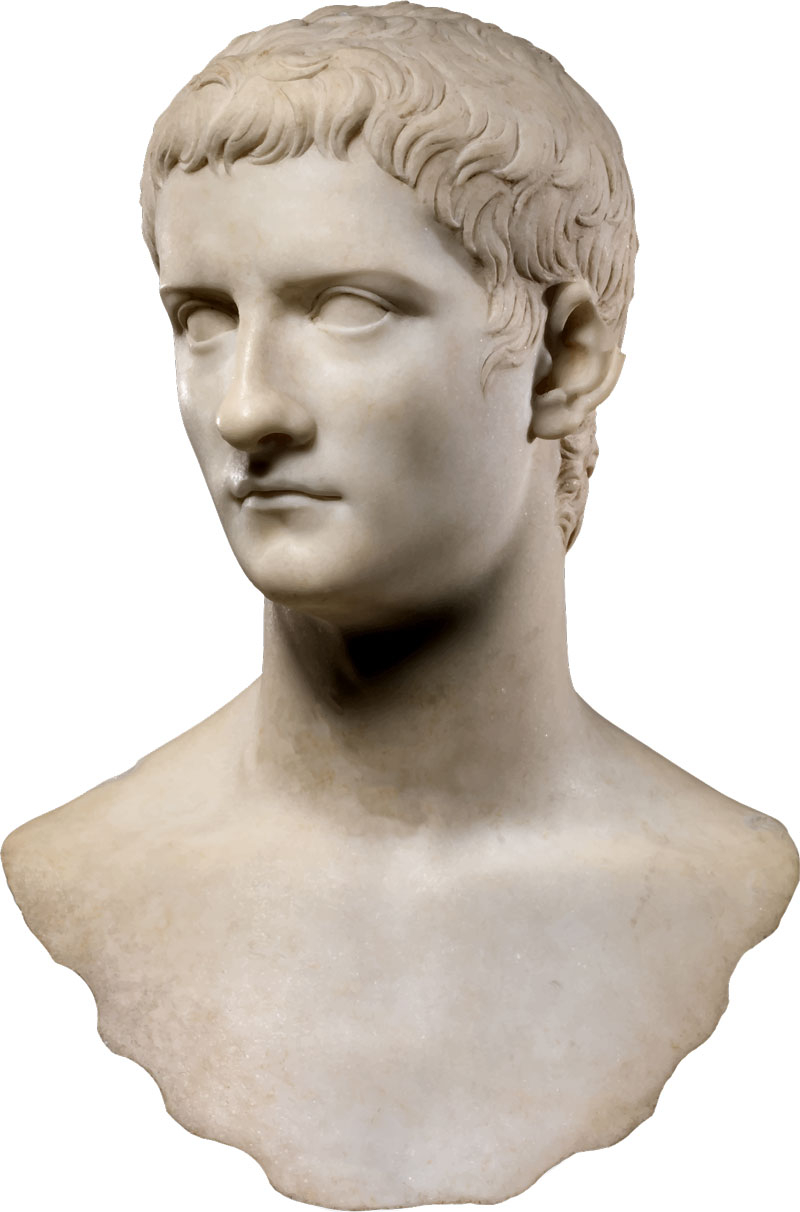
Emperor Caligula -roman-empire.net -
One of the most interesting facts about Claudius is that under Claudius, the Empire had its first major expansion since Augustus' reign. During his reign, the regions of Thrace, Noricum, Lycia, and Judea were annexed under various circumstances. Caligula's annexation of Mauretania was completed following the defeat of rebel forces and the official split of the former client kingdom into two Imperial provinces. Britannia was the most far-reaching conqueror.
Following an appeal from an evicted tribal ally, Claudius dispatched Aulus Plautius with four legions to Britain (Britannia) in 43. Britain was an appealing target for Rome due to its tangible wealth - mines and slaves - as well as its status as a safe sanctuary for Gallic rebels. Claudius personally traveled to the island once the initial offensives were completed, bringing soldiers and elephants with him. The Roman Colonia Claudia Victricensis was constructed in Camulodunum as the provincial capital of the newly established province of Britannia, and a huge temple was dedicated in his honor.
He left after 16 days but stayed in the provinces for a while longer. The Senate rewarded him for his efforts. Only members of the Imperial family were permitted to receive such honors, although Claudius later relaxed this requirement for some of his conquering generals. He was bestowed with the title "Britannicus," but only accepted it on behalf of his son, never using it himself. Claudius granted clemency to the captive British general Caractacus in 50. Caractacus died on territory donated by the Roman government, an unusual end for an enemy general.
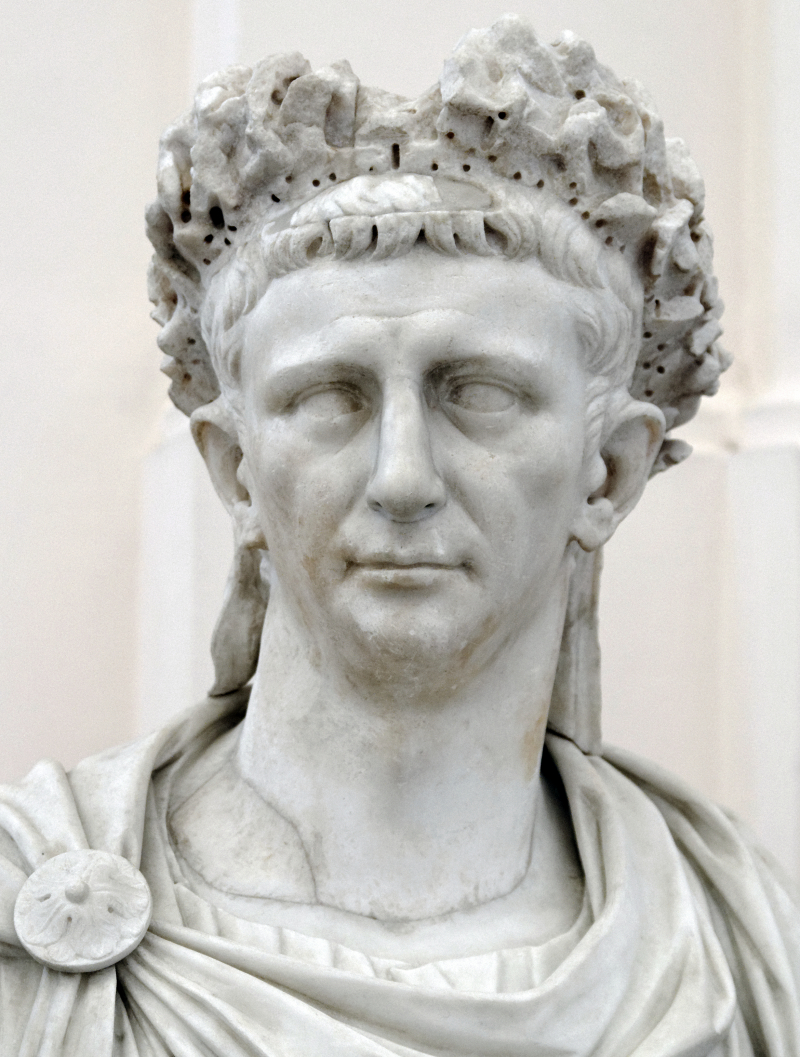
Claudius -en.wikipedia.org 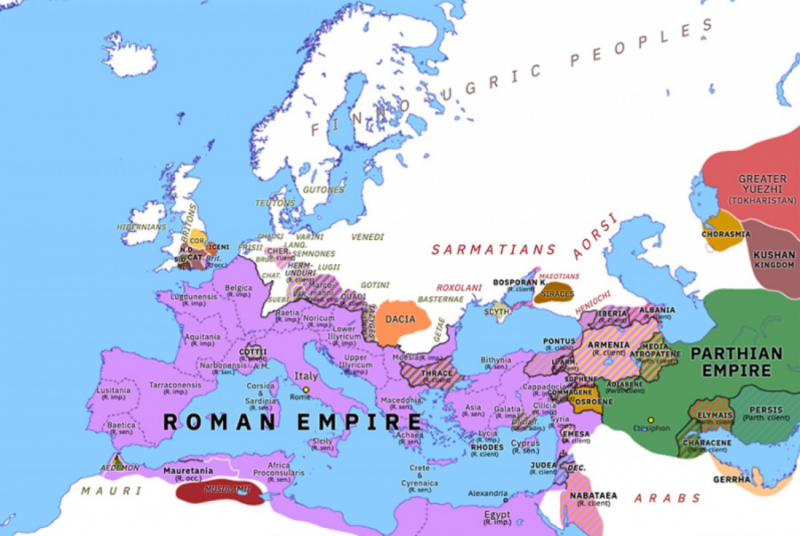
Claudius' invasion of Britain -omniatlas.com -
Claudius presided over many of the legal cases that were tried during his reign. Many ancient historians complained about this, claiming that his verdicts were inconsistent and occasionally did not obey the law. He, too, was readily swayed. Nonetheless, Claudius paid close attention to the functioning of the court system.
By shortening the regular breaks, he was able to lengthen both the summer court session and the winter term. Claudius also enacted legislation requiring plaintiffs, like defendants, to remain in the city while their cases were pending. These actions had the result of clearing out the docket. To provide a more seasoned jury pool, the minimum age for jurors was also raised to 25.
Claudius also resolved regional disputes. For their good faith, he freed the island of Rhodes from Roman rule and exempted Ilium (Troy) from taxes. After rioting between the two populations, the Greeks and Jews of Alexandria sent him two embassies at the same time early in his reign. This resulted in the famous "Letter to the Alexandrians" which reaffirmed Jewish rights in the city while also forbidding them to move in more families en masse. According to Josephus, he then reaffirmed the rights and liberties of all Jews throughout the Empire.
Throughout Claudius' tenure, numerous edicts were issued. These ranged in subject matter from medical advice to moral judgments. One of the most famous edicts dealt with the treatment of sick slaves. Masters had been abandoning sick slaves at the Temple of Aesculapius on Tiber Island to die rather than providing medical care and then retrieving them if they survived. Claudius declared that slaves who were abandoned and recovered as a result of such treatment were free. Furthermore, owners who opted to kill slaves rather than care for them faced murder charges.
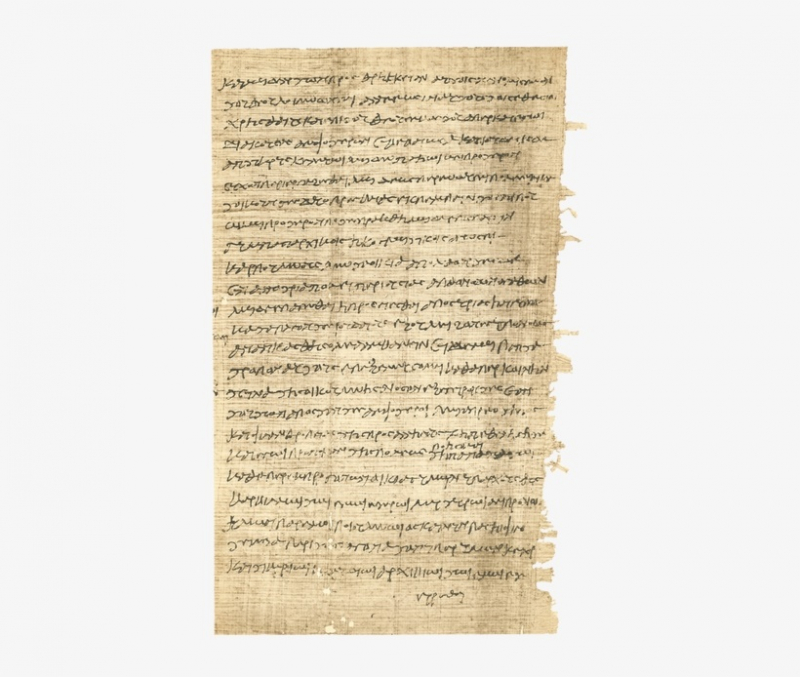
Roman Emperor Claudius' Letter to the Alexandrians 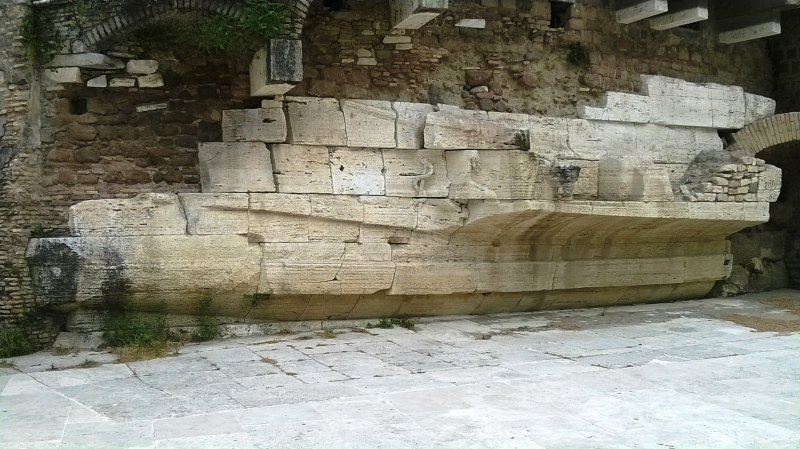
Remains of the temple on the isola Tiberina -mapcarta.com -
One of the most interesting facts about Claudius is that throughout his reign, Claudius conducted numerous public works. Throughout his reign, Claudius undertook numerous public works in both the capital and the countryside. He completed two aqueducts, the Aqua Claudia, which had been begun by Caligula, and the Aqua Anio Novus. These arrived in 52 and met at the Porta Maggiore. He also brought back a third, the Aqua Virgo.
He was particularly concerned about transportation. He built roads and canals throughout Italy and the provinces. Among these were a vast canal connecting the Rhine and the sea, as well as a route connecting Italy and Germany, both begun by his father, Drusus. Closer to Rome, he constructed a navigable Tiber canal that led to Portus, his new port just north of Ostia. This port was built in the shape of a semicircle, with two moles and a lighthouse at its entrance. The structure also helped to reduce flooding in Rome.
Claudius' answer to the periodic food shortages that occurred in winter, after the Roman shipping season, was the Ostia port. Another component of his approach was to insure the ships of grain merchants were willing to take the danger of traveling to Egypt during the off-season. He also offered its sailors additional advantages, such as citizenship and exemption from the marriage-regulating statute, the Lex Papia Poppaea. Furthermore, he eliminated Caligula's food tariffs and significantly decreased taxes on areas suffering from drought or famine.
Claudius' final plan was to expand the amount of arable land in Italy. This was to be accomplished by draining the Fucine lake, which would also make the neighboring river passable all year. A tunnel was excavated through the lake bed, however, the design did not work out. The lake's drainage continued to be an issue far into the Middle Ages. It was finally accomplished in the nineteenth century by Prince Torlonia, who created almost 160,000 acres of fresh arable land. He increased the size of the Claudian tunnel thrice.
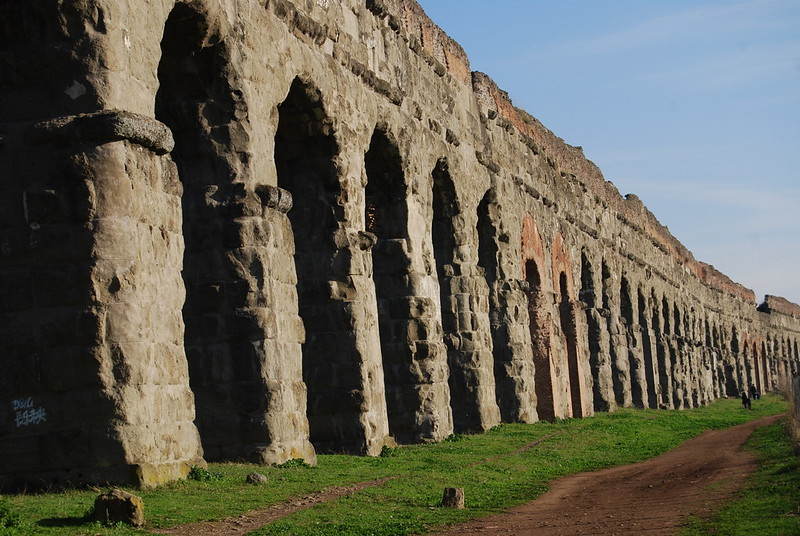
The Aqua Claudia -spottinghistory.com 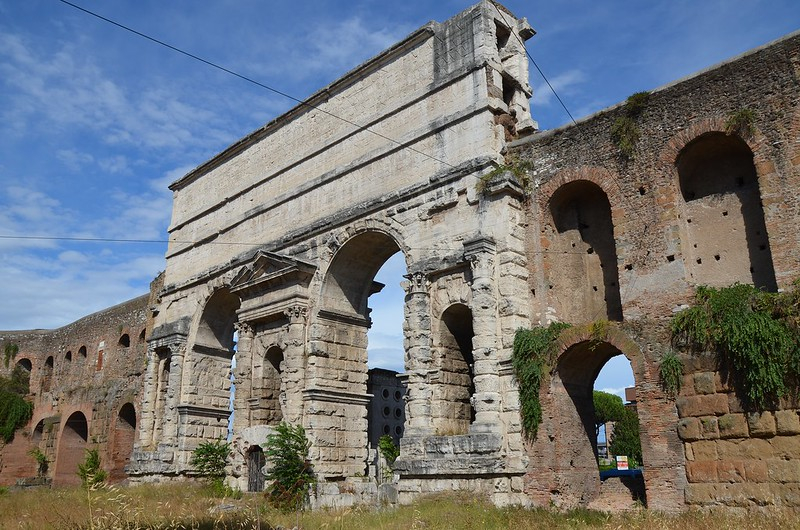
Aqua Anio Novus -spottinghistory.com -
Claudius employed freedmen to assist with the Empire's day-to-day operations. He was, however, forced to expand their role as the Princeps' powers became more centralized and the burden became heavier. This was due in part to the Senate's ongoing hostility, as previously stated, but also to his respect for the senators. Claudius did not want free-born magistrates to be forced to serve under him as if they were second-class citizens.
The secretariat was divided into bureaus, each under the leadership of a freedman. Narcissus was the correspondence secretary. Pallas was appointed Secretary of the Treasury. Callistus was appointed Secretary of Justice. Polybius was in charge of a fourth office for various concerns until his execution for treason. The freedmen might also legally speak for the Emperor, as when Narcissus addressed the army before the conquest of Britain in Claudius' stead.
Because these were crucial positions, the senators were shocked that they had been placed in their hands. It did not appear difficult for freedmen to manipulate the Emperor if they had complete power over money, letters, and the law. This is precisely the charge leveled by the ancient sources. These same sources, however, admit that the freedmen were loyal to Claudius. He was similarly grateful to them and gave them credit for policies on which they had advised him. If they showed disloyal tendencies, however, the Emperor did punish them with appropriate harshness, as in the case of Polybius and Pallas' brother, Felix. There is no evidence that the character of Claudius' policies and edicts changed as the successive freedmen rose and fell, implying that he was firmly in power throughout.
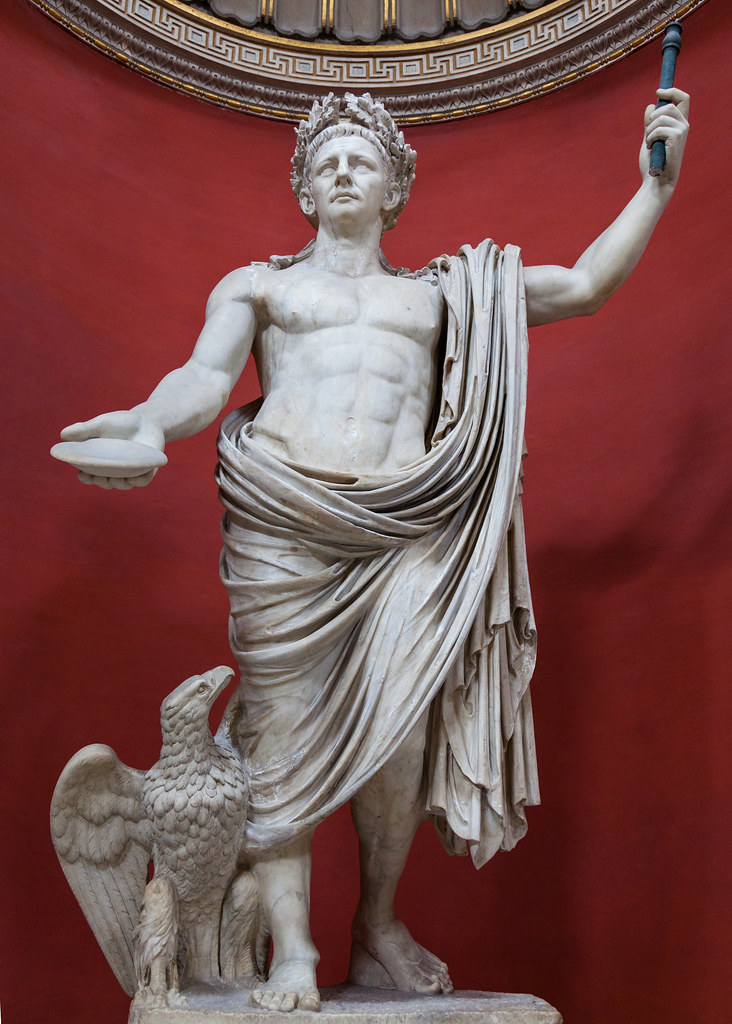
flickr.com 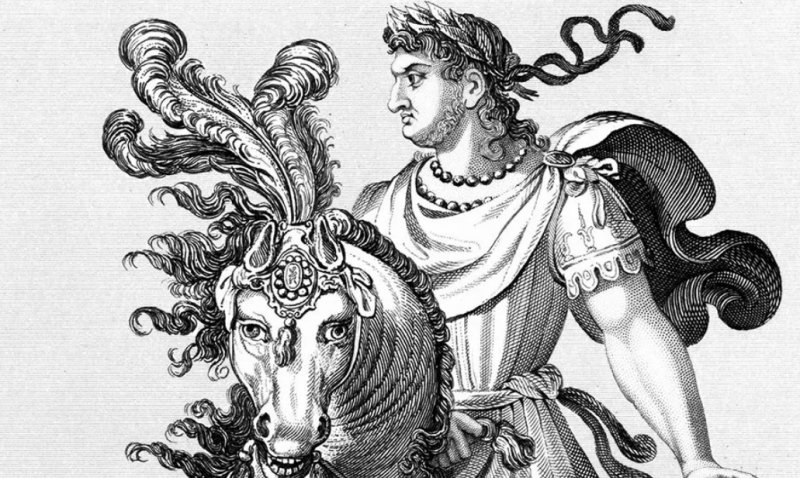
britannica.com -
One of the most interesting facts about Claudius is that he conducted religious reforms. Claudius, as the author of a treatise on Augustus' religious reforms, felt in an excellent position to institute some of his own. He was concerned about the correct shape of a state religion. He rebuffed the Alexandrian Greeks' proposal to dedicate a temple to his divinity, claiming that only gods may choose new gods. He restored lost festival days and eliminated many unnecessary ceremonies created by Caligula. He reinstated traditional customs and archaic language.
Claudius was concerned about the proliferation of eastern mysteries within the city and sought more Roman substitutes. He emphasized the Eleusinian Mysteries, which were popular throughout the Republic. The Eleusinian Mysteries were annual initiations for the Demeter and Persephone cult headquartered at the Panhellenic Sanctuary of Eleusis in ancient Greece. They are the most famous of ancient Greece's hidden religious practices. He banished foreign astrologers while rehabilitating the ancient Roman soothsayers (known as haruspices) as a replacement. He was particularly critical of Druidism for its incompatibility with the Roman state religion and its preaching operations. Claudius prohibited proselytizing in any religion, even in areas where indigenous were free to worship. It is also said that he once evicted the Jews from Rome.
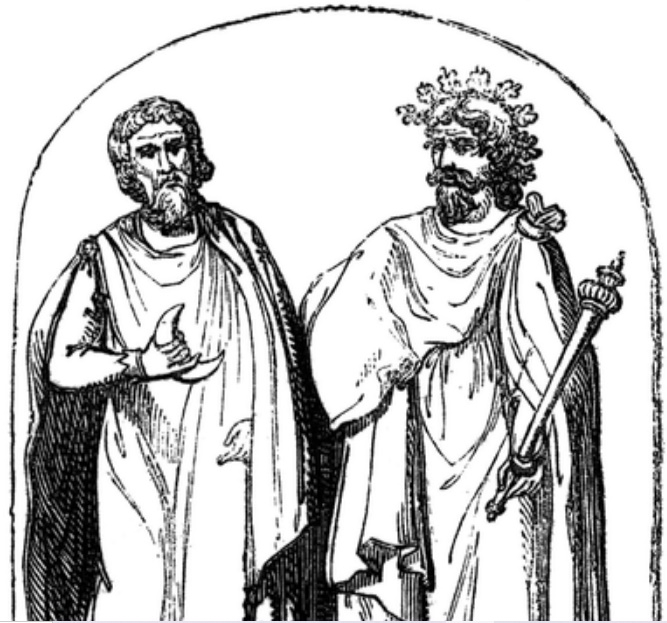
Druidism -en.wikipedia.org 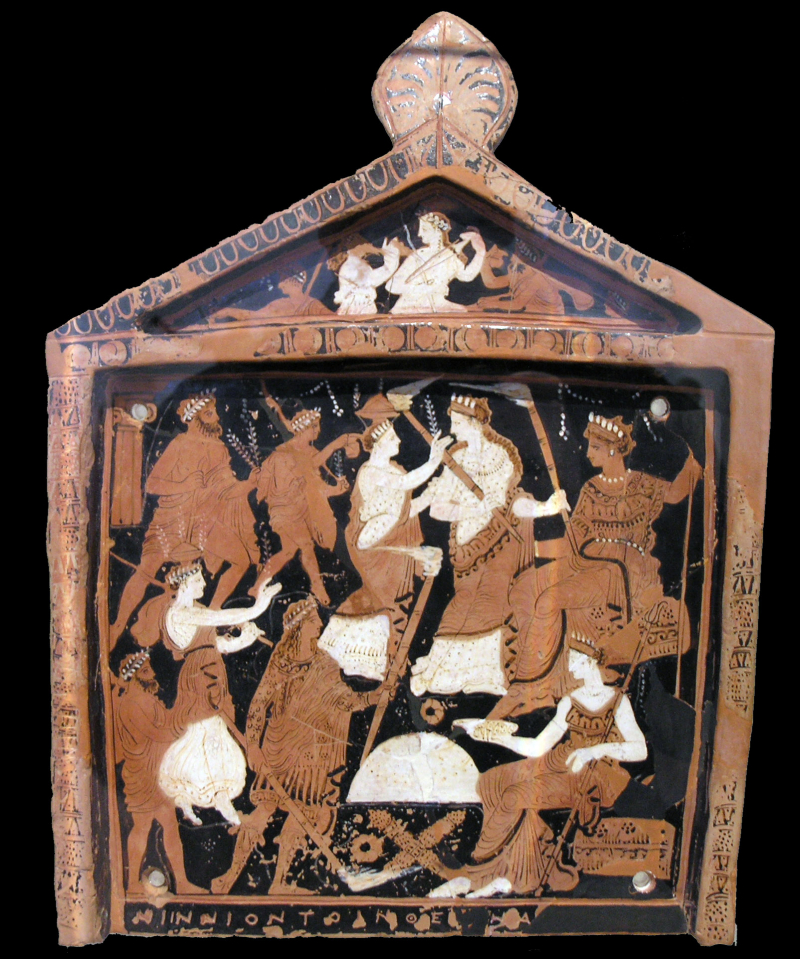
The Eleusinian Mysteries -en.wikipedia.org -
Suetonius claims that Claudius had a tremendous passion for playing games. He is reported to have risen with the crowd during gladiatorial contests and lavished admiration of the competitors. Additionally, Claudius oversaw numerous novel and creative happenings. Soon after assuming power, Claudius established games to be held on his father's birthday in honor of him. At the Praetorian camp, where Claudius had first assumed the throne, annual games were also held in recognition of his accession.
On the occasion of the 800th anniversary of the founding of Rome, Claudius staged a performance of the Secular Games. The identical sports had been conducted by Augustus less than a century earlier. Augustus' justification was that the gap for the games was 110 years, not 100, although his date did not qualify under either argument. Claudius also staged naval battles to commemorate the attempted emptying of Fucine Lake, as well as numerous other public games and performances.
Claudius also renovated and decorated numerous public spaces throughout Rome. The turning poles and starting stalls at the Circus Maximus were restored in marble and decorated, and an embankment was presumably added to prevent flooding of the track. Claudius also enforced or expanded the seating rules at the Circus, which reserved front-row seats for senators. He reconstructed Pompey's Theatre after it was devastated by fire, organizing spectacular fights during the re-dedication from a special platform in the orchestra box.
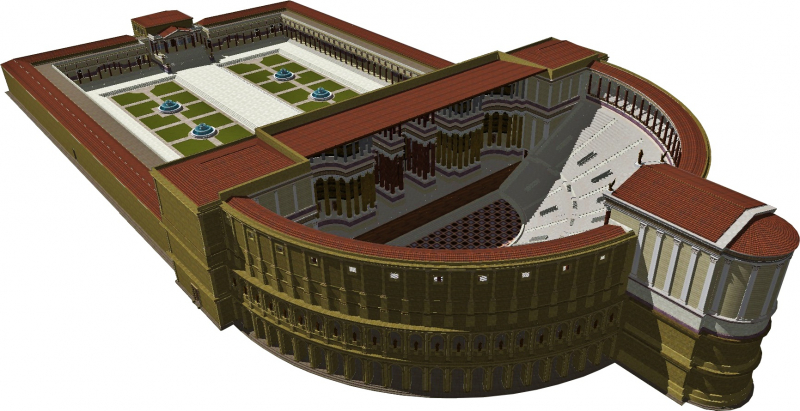
Pompey's Theatre -en.wikipedia.org 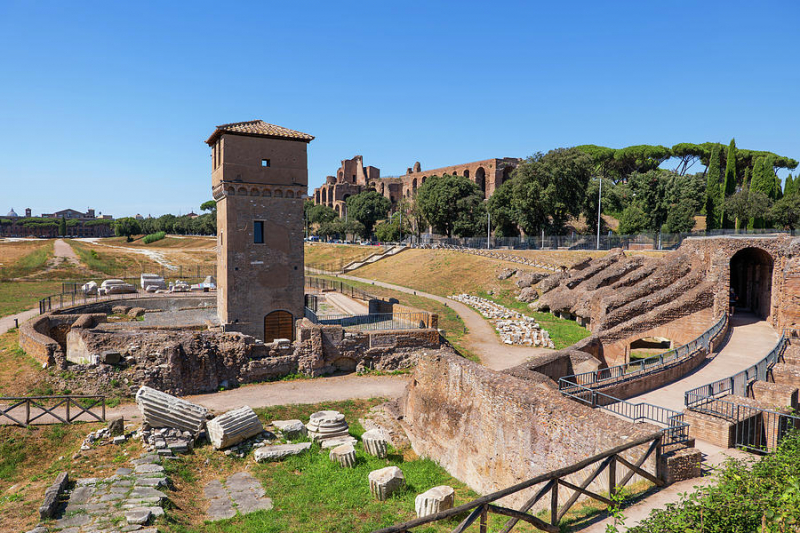
The Circus Maximus -pixels.com · In stock -
It is fact that Claudius had four marriages. After two failed betrothals, Claudius married four times. His first betrothal was to his distant cousin Aemilia Lepida, but the marriage was annulled due to political concerns. The second marriage was to Livia Medullina Camilla, which resulted in Medullina's untimely death on their wedding day.
Plautia Urgulanilla was Livia's confidante Urgulania's granddaughter. Claudius Drusus, their son, was born during their marriage. Drusus died of asphyxiation in his early adolescence, shortly after becoming engaged to Jumilla, Sejanus' daughter. Claudius divorced Urgulanilla after she committed adultery and was suspected of murdering her sister-in-law Apronia. Claudius rejected the infant girl, Claudia, after Urgulanilla gave birth after the divorce since the father was reputedly one of his freedmen. This move led to his being chastised by his adversaries.
Claudius married Aelia Paetina, a relative of Sejanus, if not Sejanus' adoptive sister, soon after perhaps in 28. Claudius and Paetina had a daughter, Claudia Antonia, during their marriage. He divorced her later after the marriage became a political problem, however, Leon speculates that it was due to emotional and mental abuse by Paetina.
Claudius married Valeria Messalina, his first cousin once removed (Claudius' grandmother, Octavia the Younger, was Valeria's great-grandmother on both her mother and father's sides), some years after divorcing Aelia Paetina in 38 or early 39. Claudia Octavia, her daughter, was born shortly after. Tiberius Claudius Germanicus, subsequently known as Britannicus, was born shortly after Claudius' reign. This marriage ended tragically. According to ancient historians, Messalina was a nymphomaniac who was frequently unfaithful to Claudius. While Claudius was in Ostia, Messalina married her lover Gaius Silius in a public ceremony in 48.
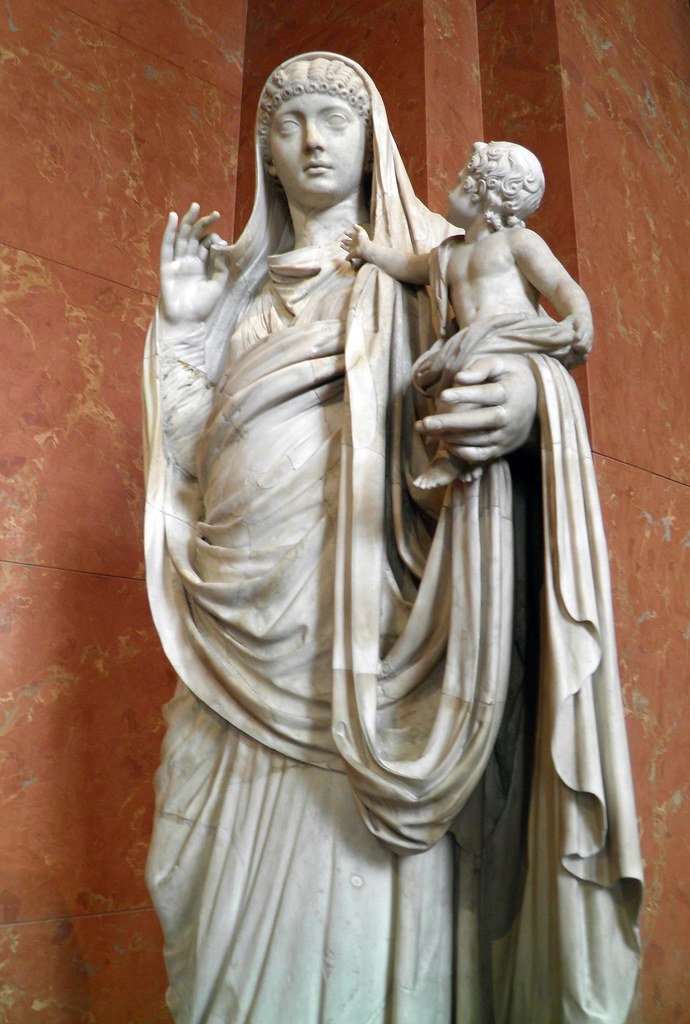
Valeria Messalina and his son -flickr.com 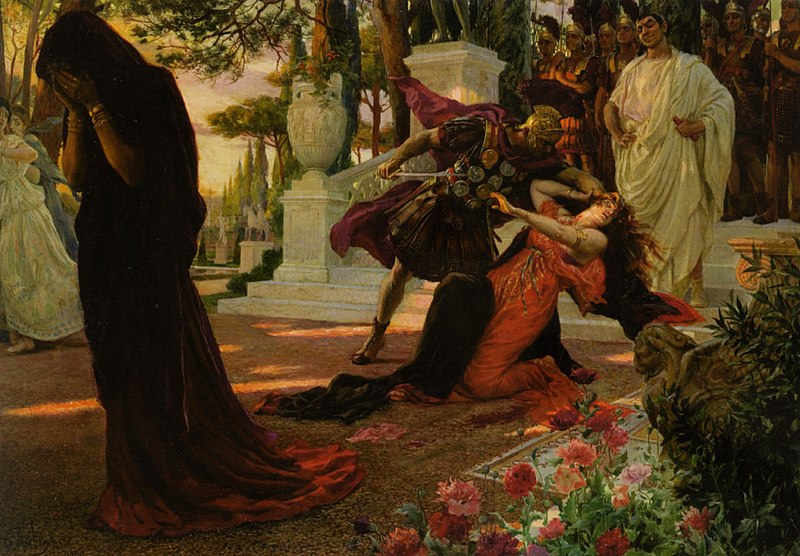
The Death of Messalina -commons.wikimedia.org















